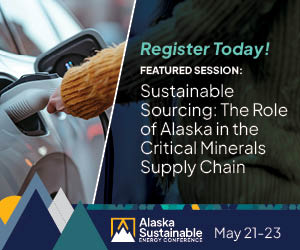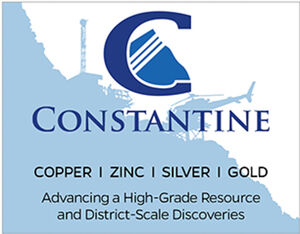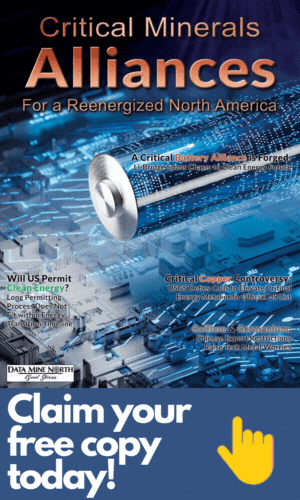Anti-Pebble collusion or valid outreach?
District court judge set to deliver ruling after hearing both sides; investigations in Washington D.C. will continue to probe EPA
Last updated 6/7/2015 at Noon
Did the U. S. Environmental Protection Agency secretly collaborate with environmental activists to contrive and execute a plan to roadblock the enormous Pebble copper-gold-molybdenum project? This is the question that U. S. District Court Judge H. Russel Holland in Anchorage is trying to answer after hearing May 29 arguments from both sides.
The Pebble Limited Partnership alleges that EPA worked behind the scenes with lawyers, scientists, non-governmental agencies and other anti-Pebble activists to develop a strategy to use Section 404 (c) of the U.S. Clean Water Act to prevent Pebble from entering the permitting process and then crafted the Bristol Bay Watershed Assessment as a basis to carry out the plan.
"In this case, EPA wanted to kill the Pebble Mine before it ever got off the ground," the Pebble Partnership summarized in its complaint filed in September.
"It thus set out to develop a scheme that would prohibit mining activities before any application had even been filed, rather than to follow normal permitting procedures that would have involved open, objective, and public review by all interested parties.
Instrumental to this scheme was EPA's clandestine use of the de facto advisory committees - made up of individuals and groups who have been vehemently opposed to any mining of the Pebble Deposit - to help the agency plan and then implement unprecedented steps designed to guarantee that no mining of the Pebble Deposit would ever take place."
EPA contends that its work with the anti-Pebble community was just routine meetings aimed at ensuring it got the science right when assessing whether a mine on the scale of Pebble should be allowed to be developed near the Bristol Bay Watershed.
Illegal committees
In the lawsuit filed last September, the Pebble Partnership alleges EPA worked secretly with three inter-related groups aimed at stopping the development of Pebble - the "anti-mine coalition", "anti-mine scientists" and "anti-mine assessment team".
"EPA reached out to a number of activists and others in the environmental community and elsewhere, brought them in and treated them as part of the team that was making the decision at EPA with respect to Pebble Mine," according to Pebble Partnership CEO Tom Collier.
In making its case, Pebble claims the "anti-mine coalition secretly advised EPA on how the agency should develop its strategy under Section 404(c), including making critical recommendations on who EPA officials should recruit, how the agency could best leverage the Alaska Native Tribes, and how to formulate EPA's messaging in a way that would minimize anti-federal government backlash among Alaskans."
Once a suitable strategy was formulated, according to Pebble, the anti-mine scientists and assessment team played an integral role in preparing EPA's Bristol Bay Assessment, a study aimed at determining the effects developing a mine at Pebble would have on the fish resources near the enormous copper-gold-molybdenum deposit.
The Pebble Partnership asserts that the behind-the-scenes collaboration between EPA and the anti-mine groups violates advisory committee law and taints the entire process for which the environmental agency is basing its Clean Water Act determination with regards to Pebble.
"Relying heavily on substantial input, advice, and recommendations from these unlawfully established advisory committees, EPA prepared a patently biased, anti-mine assessment of hypothetical mining activities in the Bristol Bay Watershed and then used that flawed assessment to commence administrative proceedings under the federal Clean Water Act that, if allowed to stand, will effectively put an end to mining before the permitting process ever gets off the ground," the Pebble Partnership summarizes in its complaint.
U.S. Department of Justice Attorney Brad Rosenberg argued that the EPA never formed these illegal committees and contends the Pebble Partnership had ample opportunity to participate in the process.
Pebble spokesman Mike Heatwole says while Pebble had opportunities to meet with the EPA, the level of access and information sharing is not comparable to that afforded the anti-Pebble groups.
Based on preliminary evidence, in November Judge Holland issued a preliminary injunction that ordered the EPA to halt its efforts to use the CWA Section 404 (c) process to pre-emptively block Pebble from entering the permitting process until the case was settled.
The Pebble Partnership says the injunction demonstrates that its case has merit. EPA, on the other hand, looks forward to resuming its efforts to stop Pebble upon conclusion of the case.
June 4, Holland ruled that the evidence does not support the idea that EPA established the anti-mine coalition and scientists. He, however, decided that evidence supports the notion EPA may have taken part in creating the anti-mine assessment team and utilized all three of the anti-Pebble groups.
The decision means that the injunction preventing EPA from continuing its CWA 404(c) process related to Pebble remains in place until the case runs its course. The ongoing trial also allows Pebble Partnership to seek discovery, which could turn up new evidence.
Ongoing probes
At least two other investigations into EPA's actions involving Pebble are underway.
One is being carried out by the EPA Office of Inspector General, an internal watchdog group.
The inspector general is looking into evidence that EPA decided to use Section CWA 404 (c) to pre-emptively block or restrict development of Pebble and then worked with anti-Pebble groups to carry out its plan.
Documents supporting this idea include emails in which Phillip North, an EPA ecologist based in Alaska, was advocating for CWA Section 404(c) action with agency colleagues as early as 2008. This pre-dates the 2010 request by Alaska Native groups that EPA has claimed as its impetus to take such an action.
EPA has said these early talks were carried out by lower officials and never reached the agency's upper echelon.
A January 2010 briefing for former EPA Administrator Lisa Jackson, however, appears to show that a pre-emptive 404(c) veto of Pebble was being discussed at the agency's highest office prior to requests for such actions by Bristol Bay Native groups.
"The notion this was predetermined, I believe, is soundly established in these documents; and certainly well-enough established for the inspector general to do an investigation," said Pebble CEO Collier.
A second probe into alleged EPA wrongdoing is be conducted by The Cohen Group, a problem-solving group founded by former U.S. Defense Secretary William S. Cohen.
"An investigation being conducted by the EPA's Office of Inspector General; inquiries and hearings into EPA actions by the House Committee on Oversight and Government Reform; and, more recently, an inquiry by the Senate Environment and Public Works Committee, as well as documents produced in response to Freedom of Information Act requests, have each raised questions as to whether the EPA proceeded fairly in its activities surrounding potential mining in the Bristol Bay watershed," Cohen said when his group's review was announced in March.
Pebble Partnership hired the firm to look into potential EPA misconduct, a fact the former defense secretary said will not influence the findings.
"A condition of accepting this assignment is that I have complete independence and discretion as to how this work will be conducted. I will follow the evidence wherever it might lead, and I will conduct this independent review as fairly and thoroughly as possible. Any conclusions that I draw from this review will be based upon the facts that I find and my judgment based on years of experience in government," he said.
Cohen said the review being carried out by his group will not opine on whether a mine should be allowed to be developed at Pebble, only if the EPA acted fairly in its efforts to prevent such a happening.
The Pebble Partnership hopes that the legal battles and investigations will allow the development of its world-class copper project to be judged in the proper arena for such things - the federal and state permitting process.











Reader Comments(0)